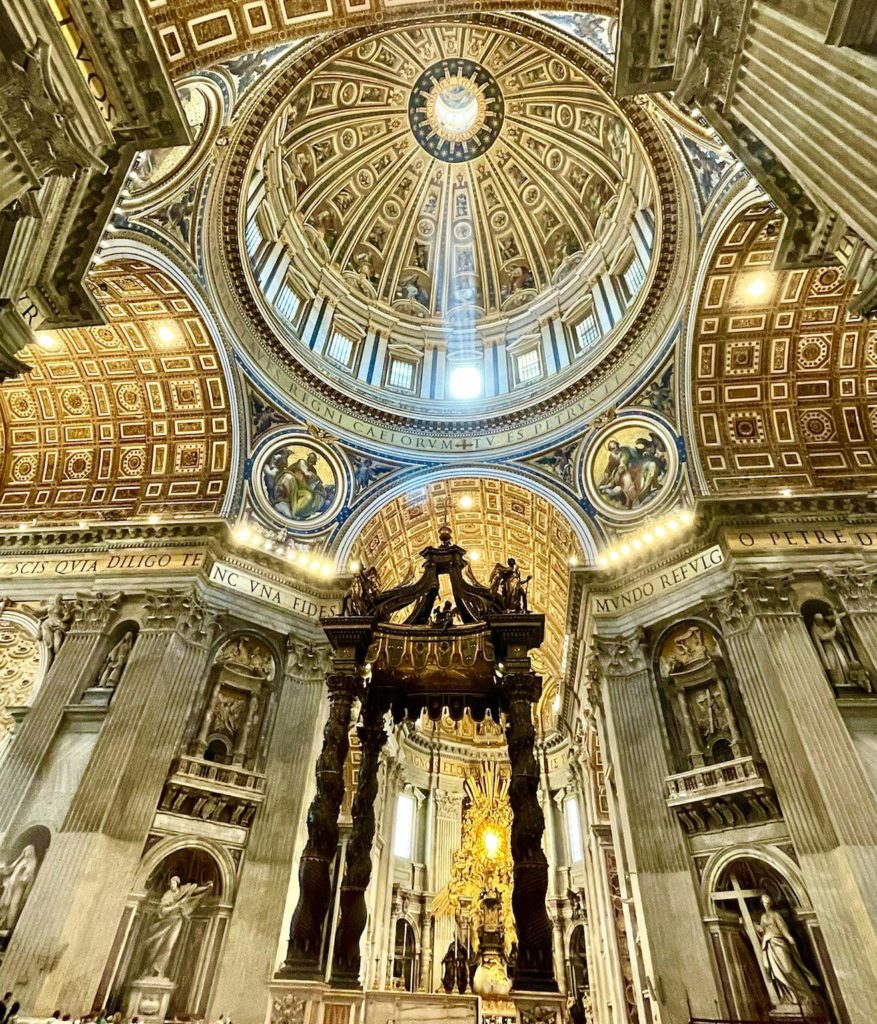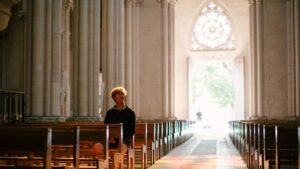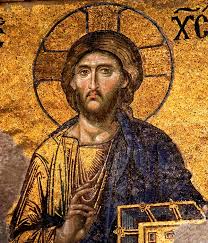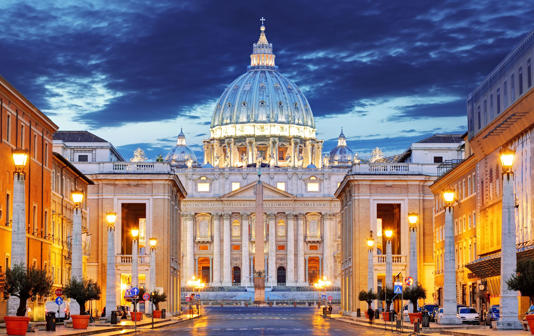“Liturgy” is where prayer begins. “Meditation” is where it continues. “Contemplation” is where it leads.
Liturgy is where our prayer begins. When the apostles asked Jesus to teach them how to pray, her gave them a liturgical prayer, the Our Father. Liturgical prayer is where we first enter into a spiritual relationship with Christ. Prayer starts on our lips. It changes our hearts. It transforms our lives. It bestows eternal life upon us.
The Holy Mass. The last thing Jesus did before he died was to give us the Eucharist, and the first thing that Jesus did when he rose from the dead was to celebrate the Eucharist again. The Eucharistic Revival invites us to enter more deeply into this mystery of our faith. “Every aspect of the celebration must be carefully tended to, and every rubric must be observed. Such attention would be enough to prevent robbing from the assembly what is owed to it; namely, the paschal mystery celebrated according to the ritual that the Church sets down.” (cf. paragraph 23 of Desiderio Desideravi.)
The Divine Office. The Liturgy of the Hours, also called the Divine Office or the Breviary, sanctifies the hours of the day with prayer. DivineOffice.org and eBreviary.com are two resources for joining in the Church’s daily celebration of praise. The Divine Office is not just for priests but for all Catholic Christians. For an overview of the Liturgy of the Hours, please click here.
The Sacraments. The Catholic Christian life is sacramental because we, as human beings are sacraments. We are a unity of body and soul, matter and spirit, and so is our prayer. When God became incarnate in Jesus Christ, he showed us how we could become partakers of his divine nature through the power and the grace of the holy sacraments of Catholic Christianity.

Lex Orandi . . . Lex Credendi . . . Lex Vivendi! The rule of prayer . . . becomes the rule of belief . . . which establishes the rule of life. So, what we pray, we believe; and what we believe, we live. Therefore, start by praying well each day, and the rest will surely follow with God’s grace and blessing! Confession and Communion are the two anchors of our spiritual life. For the Mass prayers, click here. For the Confession prayers, click here. To make the most out of seasons of the liturgical year, please click here. To go deeper into the treasures of the spiritual life, please click here for information about the ChristLife Course. For an overview of the Catholic Christian lifestyle, please click here. For spiritual support in this lifestyle, become an active participant in your parish community.
Meditation is where our prayer continues. Especially in our reflective imagination, we enter more deeply into the mystery of our faith.
Lectio Divina is one of the highest forms of spiritual reading. The Sacred Scriptures come alive for us in this ancient form of meditation.
The Rosary is one of the finest forms of Christian meditation. The Rosary focuses us on the mysteries of our salvation in Jesus Christ.

Personal Devotions provide many ways to individualize our prayer life, so that we may draw closer to our Lord in personal ways. Find a place, find a time, find a prayer, and make it part of your spiritual Plan of Life to deepen your relationship with Jesus Christ. The personal devotions in this document are special to me, but I encourage you to discover and develop these and other approved devotions that may be helpful to you in your Catholic Christian faith development. For information about the blessings in your life that come from our faith, please click here. May the Lord bless you always and everywhere and in everything!
Contemplation is where our prayer leads. Contemplation is the ultimate goal of prayer. Union with God is what we were really made for, so that we may humbly become sharers in his divine nature.
The Jesus Prayer. The prayer of the heart changes hearts. This ancient prayer form exhibits its spiritual power in profound simplicity. The Jesus Prayer not only changes our hearts and our minds; it changes our spiritual lives forever.
Adoration. The Veil Removed is a powerful video which cannot but bring us down to our knees in both wonder and awe. Remember that the A.C.T.S. of prayer include Adoration, Confession, Thanksgiving, and Supplication.

Please join in prayer with your local parish community! To locate a parish and Masses in your local area, please go to MassTimes.org. Our participation at Sunday Mass should be considered as a rehearsal, practice, or training session for daily Christian living. When we gather together for Mass each week, and personally pray every day, we will be prepared to live out the Catholic Christian life more effectively. Come to pray, learn, and serve together with your local parish community of faith. The rule of prayer is the rule of faith, which in turn is your rule of life. What is your “plan of life?” Let it rule your faith life!
Prayer and other Apps. Have you tried out the Hallow and the Amen apps? Would you like to have the Mass Readings each day? Have you been watching The Chosen? If nothing else, just set an alarm on your cell phone to remind yourself to spend some time in prayer each day . . . and, if you use a phone ring as your alarm, you can always excuse yourself from whatever is happening to answer a very important call to prayer each day. What a most blessed excuse!
Some Additional Information of Interest
About Christmas. Have you ever wondered why we celebrate Christmas on December 25th? Please click here for information about that date. And what was the year in which Christ was born? Please click here for information about that year. To find out even more about these matters, please click here.
About Easter. In what year was Jesus crucified? Please click here for information about that year. However, there something more important than finding out when Jesus was born and died. For Catholic Christians, the real question is about being reborn in Christ, that is, about dying to sin and rising to new life in Christ. Please click here for information about ChristLife.

